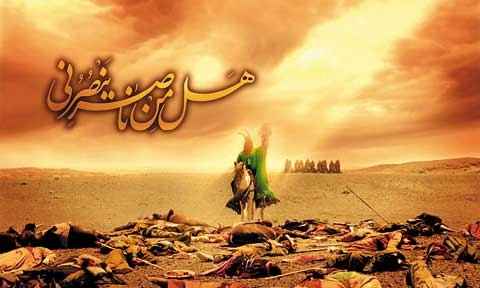
RNA – The question is often asked why didn’t Imam al-Husayn turn back from his course and instead, continued on his path after the martyrdom of Muslim ibn Aqil, his cousin and his ambassador, by people of Kufah and given his awareness of the situation of the people of Kufah and their disloyalty.
In response, it can be said that after the martyrdom of Muslim ibn Aqil, Imam al-Husayn became aware of the situation of Kufah but didn’t turn back because the main objective of the Imam was to implement the divine commandment of Enjoining the Good and Forbidding the Wrong and rise up against the system of the arrogant, whose deviancy and excess was obvious and at the same time, he claimed to be the successor of the Prophet of God. Imam al-Husayn had moved to reveal to the world that Yazid ibn Mu’awiyah and his likes didn’t deserve and deserve the caliphate. He rose up to reform the affairs of the Islamic community and to eliminate the innovations and revive the traditions.
The ‘Master of the Martyrs’ considered it obligatory for himself to revolt against the system, even though he knew he would be martyred. The Imam knew that if he, his companions and his family, even his infant son, weren’t martyred, Islam would not remain and God and His Messenger and his traditions would be destroyed.
Imam al-Husayn went forth for martyrdom. With this in mind, nothing could stop the movement of the Imam towards Karbala, even the martyrdom of Muslim and the unfaithfulness and deceit of the people of Kufah.
Whenever religion is subject to seizure and change and its customs are eliminated by the enemies, it’s imperative that Muslims rise up in assistance of religion and defend it from the dangers facing it, even if it leads to their death.
It’s clear that the rule of an evil man who is know for engaging in corruption, drunkenness and playing with dogs, such as Yazid, is the greatest danger to Islam. If time went on without protest and the government of Rey wasn’t contested by anyone, his corruption would have been irreparable and would have led to the nullification of the Imam’s actions.
Reliance on such men on the seat of the caliphate of the Prophet Muhammad shook public opinion and distorted opinions. It might be that those who were on this principle and by seeing the actions and movements of Yazid against the sanctity of the Prophet and the plans of Islam.
If a person, such as Imam al-Husayn didn’t object to Yazid and didn’t announce his caliphate as false, this mistake would grow in the hearts of the people. Moreover, it would have led most people in society toward the thought, beliefs and practices of Yazid.
Nevertheless, the Imam assumed his responsibility to perform his duties and to revolt against the system, although he knew his uprising would lead to the martyrdom of his family, his companions and his family.
His death for the cause of God and the captivity of his family was desirable and dear to God. Of course, the command of martyrdom in reality was the command to resistance.
Therefore, the uprising and movement of Imam al-Husayn was a divine duty that he needed to undertake, although it led to the martyrdom of himself, his youth and companions in order to prevent the destruction of Islam.
Rasa News Agency
112/972